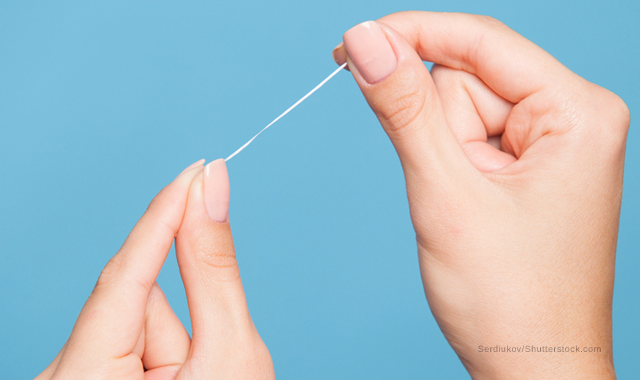To floss or not to floss?
A response to the recent article that stated flossing did not help gum health.

On August 2, 2016 the dental world was turned upside down when Jeff Donn released an article titled Medical benefits of dental floss unproven.
When the article was published, you could hear a collective sound across America of people digging deep in their bathroom drawers and throwing out the years of floss that had been put into their hygiene bags. People were now given permission to not do what so many claimed they did, but didn’t actually do anyway. No more having to make that embarrassing confession to the hygienist every six months when asked, “How often are you flossing?”
Donn’s article cited several reasons that flossing does not help avoid gum disease and that this is nothing more than a marketing ploy by big businesses like Proctor & Gamble to sell this useless piece of string and the American Dental Association (ADA) to charge for the seal of approval to these companies. He continues by saying that the ADA and the AAP (American Academy of Periodontology) cite studies to prove their claim that flossing prevents buildup, plague, gingivitis and tooth decay; however, these studies used outdated methods and tested few people.
‘Outdated methods’ is an interesting statement because the method of flossing has not changed, in any dramatic way, since Levi Spear Parmly invented it in 1819. There have been slight adjustments with the wrap around method vs sawing and/or snapping the thread but no major changes in the methodology.
The statement that the process has been tested on few people is where I have to take an extreme exception to the theory in his article. Let’s look at this in a logical manner. How do you prove that floss does not prevent gum disease?
In order to have a valued study you need to have two groups of people; Group A and Group B. All participants must possess the exact same oral and medical health, since we know that things like chemo, tobacco, diabetes, pregnancy, etc., affect the health of the gums. This study is already dead in the water because we know that is it virtually impossible to find two people that meet this requirement, much less enough to exceed Donn’s definition of “few.” However, since we are working on theoretical information anyway, let’s continue with the discussion.
Trending article: 9 of the scariest medical conditions with links to oral health
Next we need to set the parameters – Group A will be the flossers and Group B will be the non-flossers. This is where the study must stop. We are trying to prove that flossing does not prevent gum disease – that means that if we ask a group of people to stop flossing and they acquire periodontal disease, an irreversible disease that has been linked to other medical issues like heart disease, we have performed a study that is completely unethical. This would be similar to getting a group of people to begin smoking to prove that it doesn’t cause lung cancer.
How do you prove that flossing does or does not prevent gum disease? The simple answer is that you really can’t and remain ethical in your studies; however, I have seen first-hand that patients who floss have less bleeding, inflammation and plaque than those who do not. Therefore, they have less gum disease. As a hygienist I could tell those people who actually flossed and those that didn’t merely by the health of their gums. I realize that some people like to think that hygienists are just saying that to get you to floss, but I will tell you if you bring me five people who floss and five that don’t, I will be able to pick them out without a problem. For me, I say irrefutably that flossing is an important part of a patient’s daily hygiene routine. Sorry folks, unfortunately you are going to have to keep flossing. I hope you didn’t throw away all of your floss!